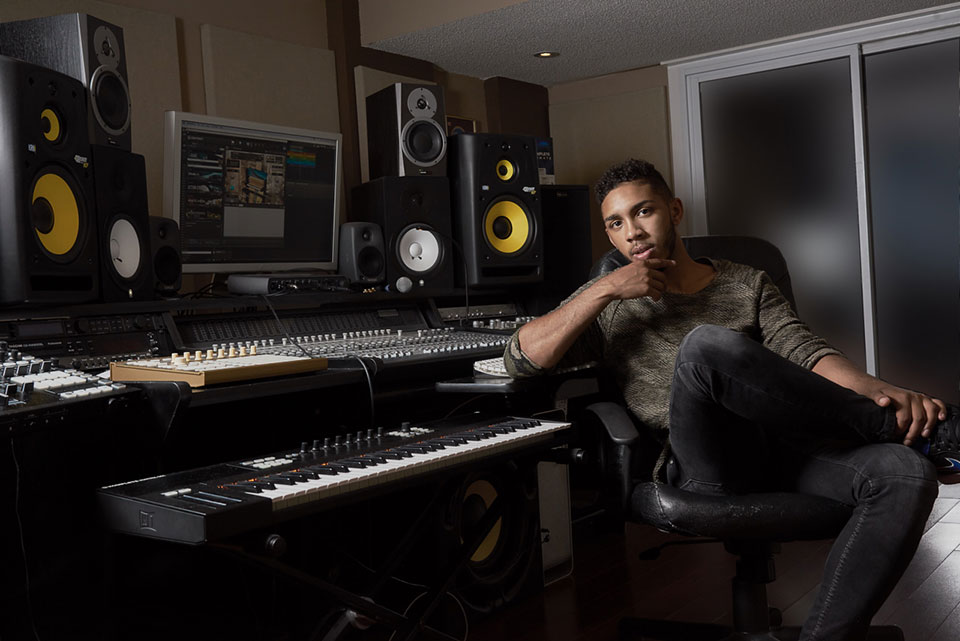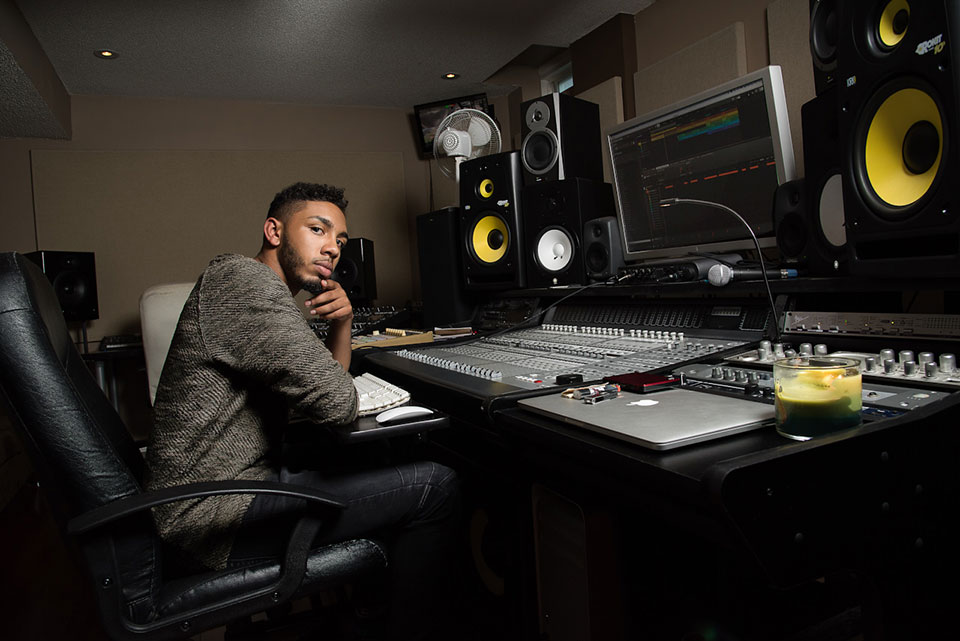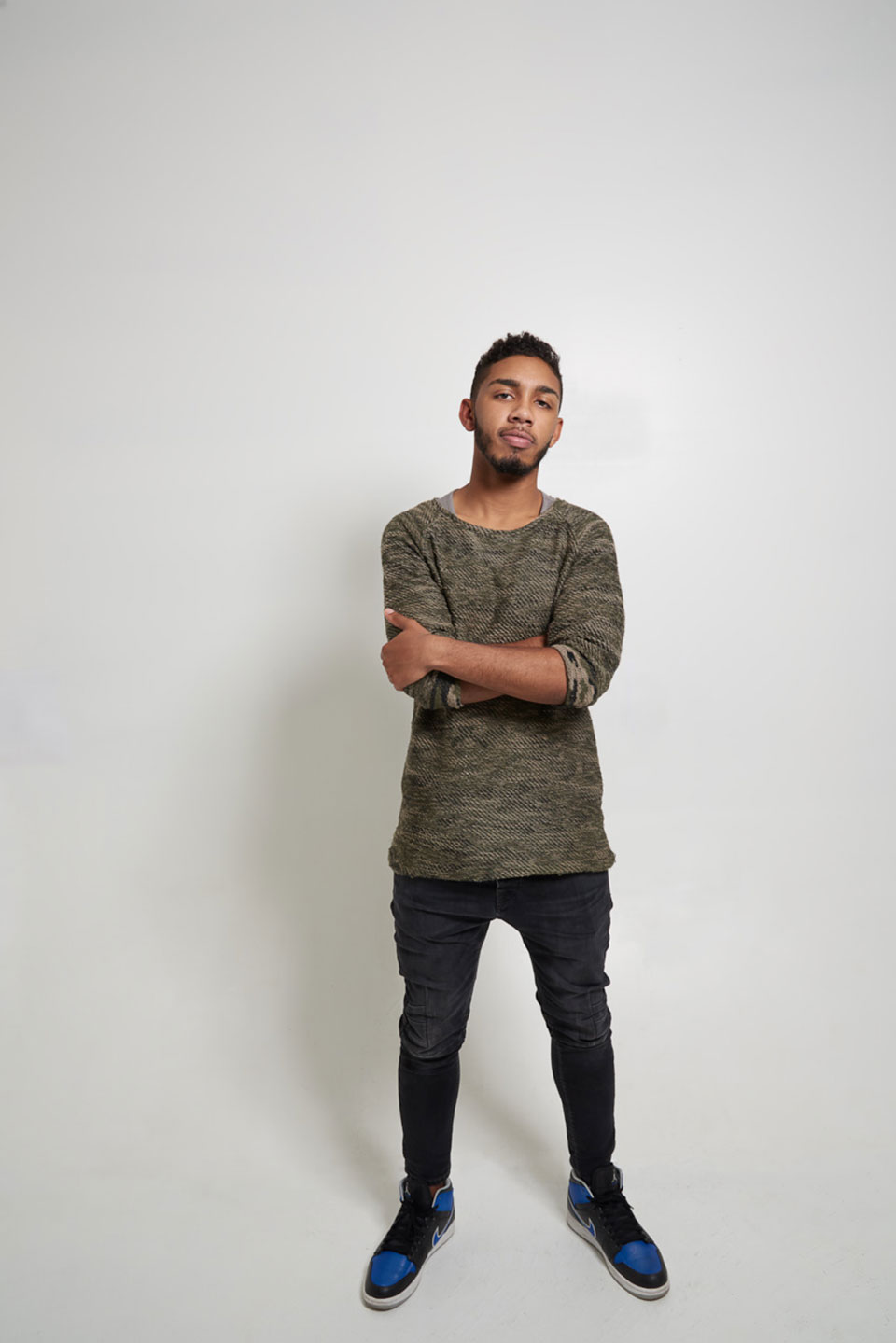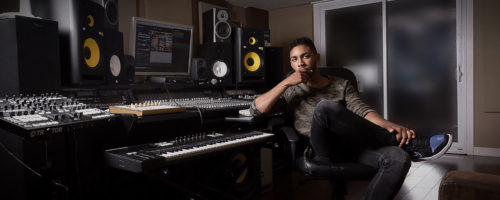With the right attitude, a strong work-ethic, and a little bit of luck, dreams can really come true. Chase Wav’s journey at the 2016 Battle of the Beat Makers competition is evidence of this.
The well-known battle takes 32 up-and-coming producers from all over the world, and puts their skills to the test in a rapid-fire, one-on-one style tournament judged by a star-studded panel of producers, artists and industry executives. The 2016 edition featured a trio of Canadian producers on the panel — T-Minus, Boi-1da, and WondaGurl — each of whom have left their mark on hip-hop sounds in recent years, and gained recognition after winning the same high-stakes battle in the early stages of their respective careers.
Chase Wav impressed each of the judges, as well as a packed crowd inside Toronto’s Opera House, with his unique flair and detailed compositions.
“I just like the pocket of his sound [and] the movement of his music,” says T-Minus on Chase’s instrumentals after the battle. “Everything was just different. It was very reminiscent of what Timbaland could do. He won for a reason.”
“I just like the pocket of his sound [and] the movement of his music.” – T-Minus
However, like most defining victories, this one didn’t come easy; in fact, this triumph took over a year to come by.
Wav’s Battle of the Beat Makers story began in 2015 when he initially entered the competition, but was only given a reserve spot, meaning only if someone didn’t show up for the battle he would get to take part. Even so, Wav believed he’d still get the chance and began preparing his best instrumentals in hopes of somehow taking home the crown, but the opportunity didn’t present itself that year.
After missing out on the chance to compete, the Montreal-bred musician refused to head home without at least knowing what sort of reception his sound would receive in front of a sizable audience. At that moment, he decided to make his move.
“I was like, damn, I came out to Toronto with these really cool beats and all this really dope music,” the confident beat maker explains. “I had my USB — I went up to [DJ] P-Plus, and I was like, ‘yo, can you play this? I was a reserve and I didn’t get to play my stuff – here.’”
“It was a rare request,” DJ P-Plus reflects. “Everyone’s coming up to me, everyone’s coming up to WondaGurl, asking us questions. So, I’m like ‘yo, let me hear it.’ As soon as I heard this beat that he won with, I played it for everybody. And then the next year, he wins.”
Emerging as the champion of the internationally recognized beat battle was a significant milestone for the Montreal artist. Not only did he walk away with over $5,000 in cash and prizes including some sophisticated studio gear, but Chase was also rewarded a private studio session with platinum-selling producer WondaGurl.
“It was really cool with WondaGurl,” Chase explains. “She really just gave off good vibes. No specific advice was given, but the way she interacts . . . she’s super friendly.”
The post-battle momentum has been a major boost for the young producer, but he’ll be the first to tell you that he still has tons of room to grow. Persistence, quick thinking, and of course, genuine skill in his craft has helped him get to this point. Goal-setting and a positive demeanour seems to be paving the way for his future. It’s clear Chase is doing exactly what he was meant to do . . . and this is only the beginning.

“Getting to the sound can take from four hours to 20 hours. It depends on the song.”
Tell me about your experience on stage. Were you nervous at all playing your work in front of such renowned judges as well as the packed crowd at The Opera House?
Yeah. It’s funny man — at first, I got placed a little further down in the matchups. I was going on later [in the competition]. I was hearing all these other beats at first. Coming out of those speakers in front of the judges, it was scary because I wasn’t sure my beats were going to knock as hard as theirs. You had some kids who were coming on with some crazy bangers. Luckily, my mixes were good. I didn’t really get any votes against me, so that’s good.
What has happened with your production work since winning Battle of the Beat Makers in 2016?
After the battle, I really had to take a step back and figure out what kind of creator I wanted to be. It made me go back to my roots, the stuff my dad put me on. Neo-soul, funk, R&B and jazz. It somehow also forced me to get more involved in the songwriting process which totally changed my approach to production. I think that’s a natural part of the process though. It’s just discovering what your role in the room is and how you can contribute to the song.
How long does it usually take until you’re fully satisfied with a beat you make?
In terms of an idea, I can kind of envision a song within a 10-minute process. Getting to the sound can take from four hours to 20 hours. It depends on the song. Sometimes it comes very easily, and sometimes you have to work at it to get the sound. Some of my best productions, I’ve had 20 hour sessions. It takes a little while to get there.
Beyond working on your beats behind the boards, do you play any instruments?
I play piano. I’ve been playing for a little while. I started around Grade two, took a little break and took some lessons after that. I know my way around a keyboard. I can always go back to the piano. There’s so many synths and analog stuff you could use to make a track. I’ve got guitarists, and I can search for drum parts. I love the keys [though].

“I try to make my music the most raw, unfiltered type of stuff.”
Do you sell beats online?
I don’t want to discredit any online producers, but for me inspiration comes in waves. And to really stand out, [selling beats online] takes a certain machine-like consistency, which just isn’t how I produce art.
Are there any things that inspire you during your creative process?
It’s good to go out and have fun — go and do really fun stuff so that you could literally get yourself in the mood to make the best song you’ve ever made. We’d go play tennis, we’d go play basketball at the court, and we’d just have fun and we’d be like — “Damn, let’s go to the stu’.” Having that vibe propels you to make the best records. You hear it in the music. You hear how you’re feeling.
Where did the Chase Wav moniker come from?
It was cool because I had seen an image of something .mp3. I kind of thought of it, like “.wav”, that’s what I deal with every day. These .wav files. A .wav file is uncompressed — a raw file. In [this] art form, I try to make my music the most raw, unfiltered type of stuff.
Tell me what you think about the music scene in Montreal.
We’ve got a lot of really cool people. It’s interesting how Montreal is going to approach these next few years with music. Right now, there’s dudes like KAYTRANADA, High Klassified — we’ve got producers that are not even known, we’ve got Billboard. The two producers on my production team come from Montreal — xSDTRK and PL. Montreal has a lot to offer.

“Creating for others is something I love, it’s what I set out to do from the start . . . But there’s a different energy when creating for yourself.”
How did you link up with those guys?
For xSDTRK, my brother [Chad Genius] introduced me. My brother’s a singer. He’s a vocalist, an artist. We’ve been working on a lot of stuff. He was working with xSDTRK — he introduced me to him at a young age. I’ve kind of kept contact, and xSDTRK had seen my growth. We’ve been working. We got a lot of records done.
Can you tell me some of your favourite producers of all time? Why are they your favourites?
Of course. There’s a lot of greats, but to keep it in the recent ones doing it this decade . . . I’d say Timbaland, Pharrell — the groove and the pocket of his drum. At a point, I really liked Scott Storch. I still like Scott Storch. There’s just so many to name, but Timbaland and Pharell are the guys that really introduced me to production — kind of the whole idea that it’s possible on a big level.
Which artists in the game right now do you dream of working with?
It would be really cool to work with somebody as big as Justin Bieber. Once you get to that level, you have to be on point. Anything coming out of the Biebs is like gold. He has the best writers and the best producers. If you could be part of that camp, it’s crazy. Beyoncé — to get to that level is the goal.
How has your family been supporting you ever since you started to take this more seriously?
Even before I did take it seriously, I’ve had influences like my dad, who was a producer himself. He was in a group in his earlier career. He was a keyboard player for a group here, and they kind of toured all around the world — Sky. He was a road keyboard player for them. They went to Asia, they went all over the place. He did some stuff with his own group [too]. Just coming from a producer’s point of view, who is also a father, [music] is the main topic of conversation when we’re just kicking it.
How hard is it to balance doing music with being in school?
It is hard. I do really want to finish school. It’s a good feeling when you have stuff taken care of and you sit down to do the music, and there’s no stress, no assignments to do. Music has just become this sort of release from school and you can tell in the sonics. It’s more personal. You can just feel it more.
What are you working on now musically?
I’ve been going back and forth a lot between Montreal and LA doing a lot of artist sessions. It’s been fun to get in with extremely talented writers and artists that elevate you. Creating for others is something I love, it’s what I set out to do from the start. It will always mean compromising some of your vision, and that’s not necessarily a bad thing. But there’s a different energy when creating for yourself. And that’s what I’ve been doing. Watching producers like Soundtrack (xSDTRK) craft full albums inspired me to start working on my own personal project, something that will be coming within the next year.
With files from Priya Ramanujam
Photos © Isa Ransome + Urbanology Magazine




Comments are closed.